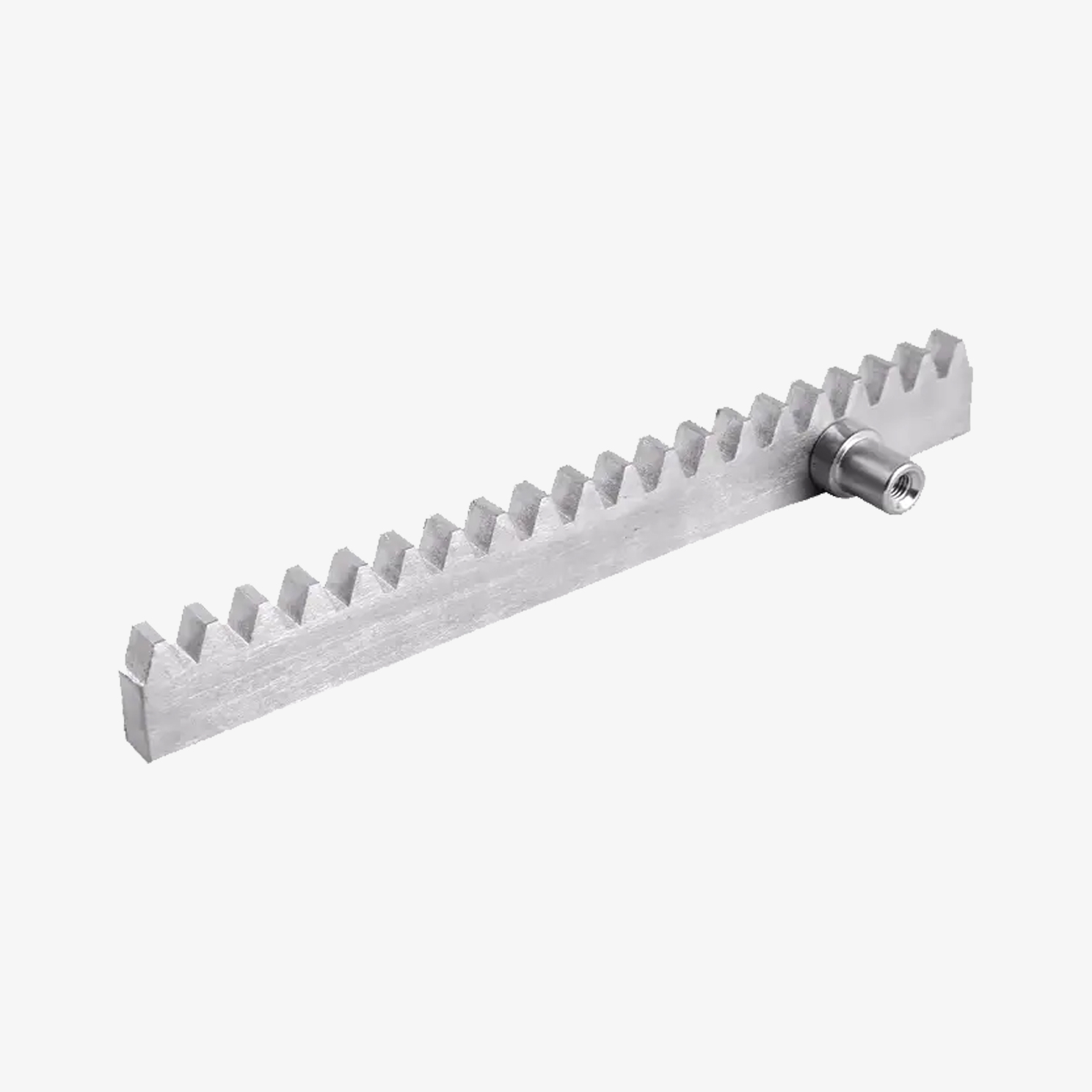No. 200 Gaoxin RD, Shanghua St, Lanxi, Zhejiang, P. R China
The Stainless Steel Rack Pinion Gear for Sliding Motors is a high-prec...
See DetailsA Custom Aluminum Rack and Pinion system addresses several mechanical and operational challenges faced in industries that require lightweight, corrosion-resistant, and precisely tailored linear motion components. Unlike standard configurations made from steel or cast iron, aluminum rack and pinion assemblies offer specific advantages in environments where material characteristics and application-specific designs are critical.

One of the primary problems solved by Custom Aluminum Rack and Pinion systems is weight reduction. In automated machinery or mobile platforms, weight is essential for energy efficiency, speed, and reduced wear on moving parts. Aluminum provides a high strength-to-weight ratio, making it ideal for lightweight structures without compromising mechanical performance.
Another issue it resolves is corrosion in exposed or humid environments. While traditional steel components can rust without proper coatings, aluminum naturally forms an oxide layer that protects it from corrosion. This makes custom aluminum systems well-suited for outdoor equipment, marine applications, and environments where humidity or chemical exposure is present.
The flexibility of customization is also a solution for projects requiring non-standard dimensions, gear profiles, or mounting methods. Off-the-shelf rack and pinion systems may not fit unique mechanical layouts or performance requirements. With custom aluminum designs, engineers can specify tooth pitch, rack length, surface treatments, and even integration with non-metallic components to match exact application needs.
Lastly, aluminum systems often offer lower noise and smoother operation, especially when combined with appropriate lubricants and compatible pinion materials. This makes them valuable in precision applications such as laboratory automation, light-duty robotics, and certain medical devices.
The increasing demand for Plastic Rack and Pinion systems is driven by a growing need for lightweight, cost-effective, and maintenance-friendly linear motion solutions in a variety of industries. These components, made from engineered plastics such as nylon, acetal, or polycarbonate, serve as practical alternatives to traditional metal gears in applications where high loads are not the primary concern.
A key factor contributing to this demand is the need for quiet and smooth operation. Plastic rack and pinion systems generate less noise due to the damping properties of polymer materials. This makes them suitable for environments where noise reduction is desired, such as office equipment, medical devices, and automated consumer products.
Another driver of demand is cost efficiency. Plastic components are generally less expensive to manufacture, especially in high volumes through injection molding. This makes them appealing for products with budget constraints or short product life cycles. In consumer electronics and small appliances, plastic rack and pinion systems deliver the necessary motion control without excessive material or machining costs.
Corrosion resistance is another factor supporting the adoption of plastic gear systems. Unlike metal, plastic does not corrode, making it useful in settings exposed to moisture or chemicals, such as food processing equipment or laboratory environments. Some plastics also offer self-lubricating properties, eliminating the need for external lubricants and reducing maintenance requirements.
Furthermore, design flexibility is a significant advantage. Plastic materials can be molded into complex shapes, allowing for integrated features such as mounting clips, bushings, or enclosures. This simplifies assembly and reduces the need for additional components.